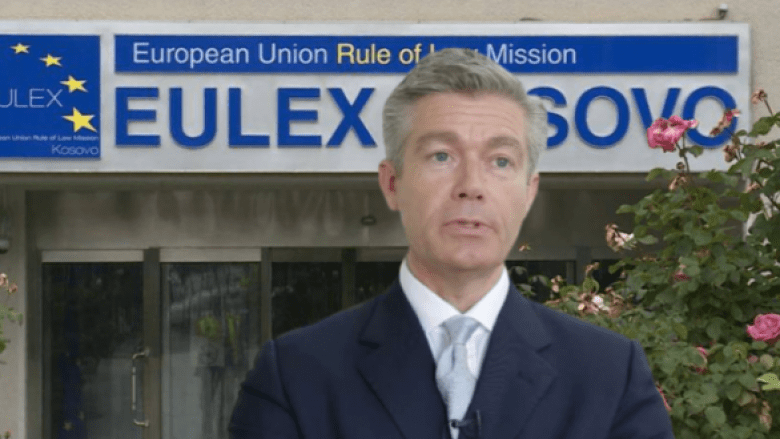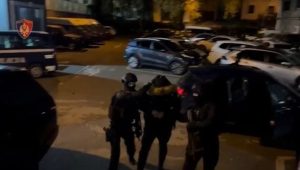Former EULEX Chief Justice Malcom Simmons has sent to Prime Minister Albin Kurti part of his testimony on scandals carried out by the EU Rule of Law Mission (EULEX). On this basis, Simmons has requested to report to the Assembly of Kosovo on all these allegations.
In Simmons’ testimony to the Prime Minister, in addition to the political influences, EULEX’s cooperation with the prosecution in Belgrade, Simmons provides details and expresses dilemmas about the work of the Special Court. So far, the government has not responded to this letter from Malcom Simmons. He was the first specialized prosecutor of the Special Court in The Hague.
But in this position, David Schwendiman did not stay more than two years. He had said at the time that he was resigning because of the implementation of American laws, which according to him did not allow him to hold this position for longer. But it is the former chairman of the assembly of EULEX judges, Malcom Simmons, who is claiming that something else is hidden after Schwendiman’s departure.
In his 25-page testimony to Prime Minister Albin Kurti, Simmons wrote that Schwendiman was expelled because he had found no evidence for KLA leaders.
Simmons’s full letter to Kurt has been provided RTK, through which he seeks to report to the Assembly. Malcom Simmons claims that the Special Court was supported by the internationals to get closer to Serbia because the latter did not trust the Kosovo Courts.
“After the establishment of the Special Chambers of Kosovo, I began to hear rumors circulating in the senior management that Brussels was not satisfied with the prosecutor of the Special Chambers, David Schwendiman, because his office had not filed an indictment. The insinuation at the time was that the prosecutor’s office had thought that the evidence against some high-profile members of the KLA was insufficient. I was informed that the discussions continued in Brussels with the views that Mr. “Schmendenman should be replaced by another person who could be trusted,” said Simmons’ testimony.
In the letter he sent on June 3, Malcom Simmons details the allegations of misuse of EULEX on various occasions against former KLA leaders. With the request to report to the Assembly, Simmons informed Kurti that dozens of files had been sent by EULEX prosecutors to the Belgrade Prosecutor’s Office.
According to him, EULEX had never allowed him to investigate this.
“Prior to my appointment as President of EULEX Judges, I was aware of discussions within EULEX regarding the transfer of files to the Serbian prosecutorial authorities. I was also aware of the ongoing talks between EULEX and Serbian prosecutors. Indeed, EULEX prosecutors traveled to Serbia on many occasions to discuss cases with Serbian prosecutors. “When I became president of EULEX judges in 2014, I discovered that dozens of war crimes files had been handed over to the prosecutorial authorities in Serbia,” Simmons further wrote to Prime Minister Kurti.
In his letter, the former judge talks about political influences in the Klecka, Drenica and Oliver Ivanovic cases. All the judges who disobeyed orders from above, who according to Simmons came from Brussels, were accused of corruption. Everything in EULEX, according to him, depended on advancing the Kosovo-Serbia dialogue.
“There were also clear political objectives of the mission. For the international community, relations with Serbia and advancing the Pristina-Belgrade dialogue became a priority. Those who obstructed the process were seen as obstructors who had to leave positions of power and influence. EULEX judges were the means to an end. What could not be achieved through political dialogue would be achieved through a distorted judicial process. “This included people from the entire political spectrum, not only former KLA commanders, but also popular politicians.”
So far the Government has not responded to Malcolm Simmons’ letter, while the same is awaiting a response from the Committee on Legislation. Malcolm Simmons is one of the whistleblowers who reported on serious political violations and the orchestration of trials in the EULEX mission in trials against members of the Kosovo Liberation Army.




